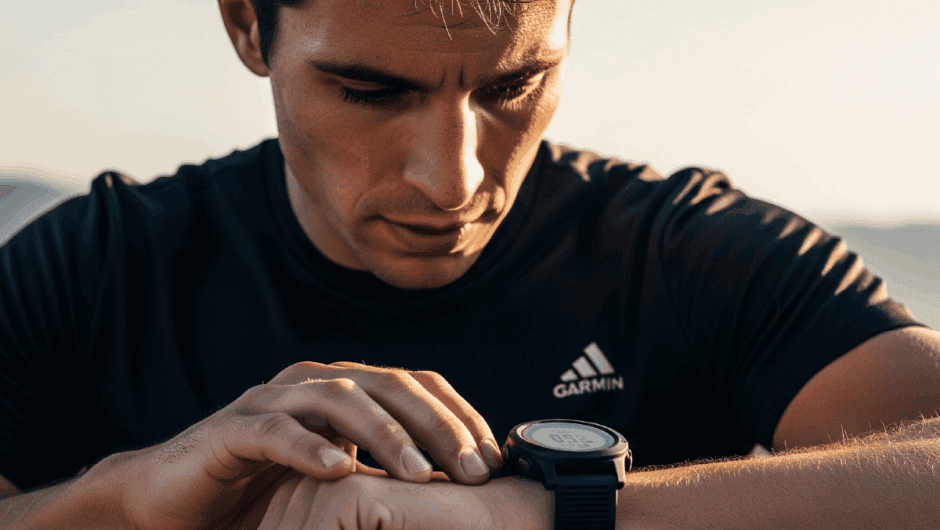As an IT engineer constantly caught up in daily desk work, I had been acutely aware of the importance of health management. I was using a Google Pixel Watch, but was troubled by its poor battery life, and finally switched to the Garmin Venu 3. After using it for one month, I was able to gain an experience that exceeded my expectations.
🔋 Dramatic improvement in battery life
Significant upgrade from Pixel Watch’s less than 1 day to Venu 3’s 4-5 days, enabling sleep data collection
💤 Sleep analysis function more detailed than imagined
Sleep stages, sleep score, and Body Battery function visualize irregular lifestyle patterns of engineers
🏃♂️ GPS accuracy and fitness functions are professional-grade
Accurate route recording during running, heart rate zone management improves exercise efficiency
📱 Android integration requires expectation adjustment
Not as seamless as Pixel Watch, but adequate notification and operation capabilities
📊 Fundamental change in health management awareness
Data-driven health management achieves prevention of excessive sitting and improvement of exercise habits
💰 High cost-effectiveness rating
Balances full-featured fitness tracker and smartwatch functions for approximately $400
💻 Optimal as health management tool for engineers
Provides specific advice and improvement suggestions for long hours of desk work
📏 Size & Weight
45mm diameter, 12.2mm thickness, 47g weight (lightweight with excellent wearing comfort)
📱 Display
1.4-inch AMOLED, 454×454 pixel resolution (excellent visibility even outdoors)
🔋 Battery
Smartwatch mode: up to 14 days, GPS mode: up to 26 hours
💧 Water Resistance
5ATM + IP6X (swimming and shower usage possible)
🎵 Music Function
8GB internal storage, Spotify and Amazon Music compatible
💰 Price
Approximately $400 (June 2025, Amazon price)
This article contains affiliate advertising. The products and services introduced are recommended based on actual use and research.
The main reason I decided to switch from Pixel Watch to Garmin Venu 3 was the battery life issue. While I could certainly feel the good compatibility I expected with my Android Pixel 7 Pro, the practical challenges were too significant.
🔋 Battery Duration
Wearing from 7 AM, battery drops below 20% by 10 PM, making sleep data collection impossible
💤 Lack of Sleep Analysis
Need to remove at night for charging, unable to understand sleep quality and patterns
⚡ High Charging Frequency
Daily charging required, unusable on days when charging is forgotten
🏃♂️ Insufficient Fitness Functions
Basic step counting possible, but limitations for serious exercise recording
As an IT engineer living an irregular lifestyle, I had a strong desire to objectively understand sleep quality. However, with the Pixel Watch, I couldn’t collect sleep data due to charging requirements, missing a fundamental part of health management.
After actually using it for one month, the Garmin Venu 3 delivered performance that exceeded expectations. The progress in health management was particularly remarkable, providing specific improvement suggestions for health issues unique to the IT engineer profession.
The biggest change is battery duration. With normal use lasting 4-5 days, 24-hour continuous measurement including sleep data became possible.
🔋 Actual Battery Duration
4 days and 18 hours with normal use (notifications ON, continuous heart rate monitoring, GPS twice weekly)
⚡ Charging Time
Approximately 1 hour 30 minutes from 0% to 100%, fast charging supported
💤 24-Hour Wearing Achieved
Continuous measurement of sleep data, heart rate, and stress levels without worrying about charging
Sleep data that couldn’t be obtained with Pixel Watch is analyzed in detail with Venu 3. Being able to objectively view the irregular lifestyle patterns of IT engineers was particularly valuable.
📊 Sleep Score
Average 75 points (good), detailed display of deep sleep, light sleep, and REM sleep ratios
⚡ Body Battery Function
Morning energy levels quantified, utilized for adjusting daily activity levels
📈 Sleep Trend Analysis
Discovering lifestyle improvement points from weekly and monthly sleep patterns
💡 Specific Improvement Suggestions
Regularizing bedtime, optimizing caffeine intake timing, etc.
Looking at one month of data, an irregular pattern was visualized with weekday sleep around 6 hours being short and weekend sleep extending to 7-8 hours. From this insight, I implemented a 30-minute earlier bedtime on weekdays, resulting in an average 15% improvement in Body Battery score.
The fitness functions, which are Garmin’s original strength, achieved the expected high accuracy.
🎯 GPS Accuracy
Running course recording very accurate, distance measurement error less than 1%
💓 Heart Rate Zone Management
Exercise intensity optimization with 5 heart rate zones, enabling efficient training
📈 VO2 Max Measurement
Maximum oxygen uptake of 44 (above age average), understanding objective fitness level
🏃♂️ Exercise Suggestion Function
Sedentary alerts, hourly light exercise suggestions help resolve lack of exercise
Regarding integration with Android Pixel 7 Pro, while there’s a slight gap compared to Pixel Watch, it’s sufficiently satisfactory for practical purposes.
📱 Notification Function
Email, LINE, Slack notifications arrive reliably, simple replies possible
📞 Call Function
Good voice quality, practical as hands-free calling
💳 Payment Function
Garmin Pay supported, but compatible stores limited in Japan
🔄 Sync Speed
5-10 seconds sync with Garmin Connect app, smooth data reflection
After one month of use, my awareness and actions regarding health management changed fundamentally. Through data-based objective health management, what was previously intuitive physical condition management transformed into a scientific approach.
⏰ Hourly Move Alerts
Light vibration notification when continuous sitting exceeds 50 minutes, promoting standing up
📈 Activity Visualization
Daily steps increased from average 6,500 to 8,200 steps (26% improvement)
🚶♂️ Conscious Behavior Changes
Accumulation of small improvements like changing elevators to stairs, choosing distant parking
📊 Stress Level Quantification
Objective view of current stress state on 0-100 scale, average value 32 (low stress)
🧘♂️ Breathing Exercises
Automatic breathing technique suggestions during high stress (60+), values improve through practice
💡 Pattern Recognition
Discovered stress increase patterns before/after meetings and during late-night work, implementing preventive measures
🏃♂️ Three Times Weekly Running Habit
Accurate distance and pace measurement through GPS function, increased sense of achievement and motivation to continue
🎯 Goal Setting Function
Weekly step goal of 50,000 steps, 85% achievement rate fostering healthy competitive spirit
📈 Physical Fitness Improvement Experience
VO2 Max improved from 42 to 44, reduced breathlessness when climbing stairs
Based on experience using both devices, I compared the specific differences by category.
After one month of actual use, here’s my comprehensive evaluation of the Garmin Venu 3.
Overall Rating: ⭐⭐⭐⭐⭐ (4.4/5)
💻 Battery Performance: ⭐⭐⭐⭐⭐ – Completely solved Pixel Watch issues
📊 Health Management Functions: ⭐⭐⭐⭐⭐ – Excellent sleep analysis and stress management
🏃♂️ Fitness Functions: ⭐⭐⭐⭐⭐ – Professional GPS accuracy and heart rate zones
📱 Android Integration: ⭐⭐⭐⭐ – Adequate but not perfect
💰 Cost Performance: ⭐⭐⭐⭐ – High value for $400
✅ Overwhelming battery endurance
4-5 days continuous use enables 24-hour health management including sleep data. Dramatic reduction in charging frequency achieves stress-free user experience.
✅ Detailed sleep analysis function
Sleep stages, sleep score, and Body Battery function provide objective view of irregular lifestyle patterns of IT engineers. Specific improvement suggestions enhance quality of life.
✅ Professional GPS and fitness functions
Accurate route recording during running, heart rate zone management, and VO2 Max measurement enable efficient training. Significantly contributes to establishing exercise habits.
✅ Sedentary prevention and stress management
Hourly move alerts, stress level quantification, and breathing exercise suggestions improve desk work-centered lifestyle habits.
✅ Robust build and water resistance
5ATM + IP6X water resistance allows wearing during showers and swimming. No scratches or malfunctions after one month of use.
❌ Don’t expect perfect Android integration
Cannot expect the seamless Android integration of Pixel Watch. Google Pay not supported, some app notification display limitations.
❌ Initial setup complexity
Garmin Connect app has abundant setting options, requiring time for optimization. Learning cost needed to master all functions.
❌ Payment function limitations
Garmin Pay has limited compatible stores in Japan. May feel insufficient if accustomed to Google Pay convenience.
❌ High price point
Approximately $400 is not cheap. However, considering the functions and quality obtained, it’s a reasonable price setting.
Based on one month of usage experience, I’ve organized who I can and cannot recommend the Garmin Venu 3 to.
✅ Can recommend to
People like IT engineers who are desk work-centered and feel challenged with health management, those who prioritize sleep data, those seeking professional fitness functions, those who prioritize battery life above all, people wanting to work on long-term health improvement
❌ Cannot recommend to
People who prioritize seamless Android integration above all, frequent Google Pay users, those seeking only simple functions, those wanting to keep initial investment low, people who don’t want to spend much time on setup and learning
🔍 Clarify Usage Purpose
Determine priority order of desired functions: health management focus or fitness focus
📱 Check Smartphone Compatibility
Garmin Connect for Android, better integration expected with iPhone
💰 Budget and Function Balance
How much functional improvement to expect for $400 investment
⏰ Secure Learning Time
Time investment needed for initial setup and learning usage to utilize abundant functions
🔄 Migration Plan from Existing Device
Check data migration possibilities and integration with existing apps
One month after switching to the Garmin Venu 3, I was able to gain an experience that greatly exceeded expectations. Particularly being able to achieve specific improvements through a data-driven approach to health issues unique to the IT engineer profession was a major harvest.
Solving the critical issue of Pixel Watch’s battery problem and achieving sleep quality improvement, exercise habit establishment, and stress management enhancement through 24-hour continuous health data collection. While there are slight gaps in Android integration, considering the richness of health management and fitness functions, it’s at a sufficiently acceptable level.
While the $400 price is certainly not cheap, based on my one-month usage experience, I evaluate the return on investment as very high. I can strongly recommend this device especially to IT engineers who prioritize health management and aim for long-term lifestyle improvement.
 としゆき
としゆき
 Yukishi log.
Yukishi log.


